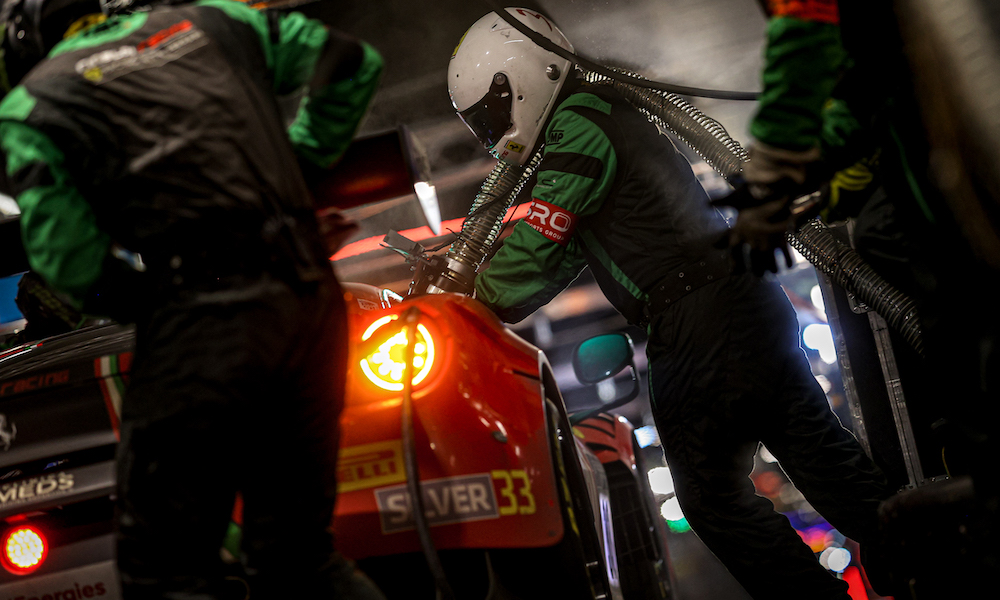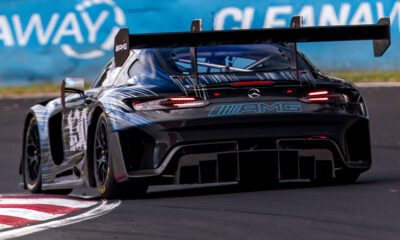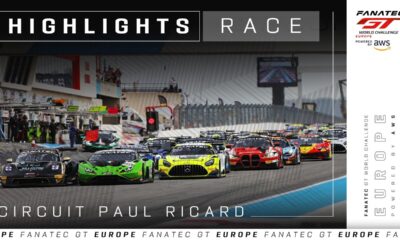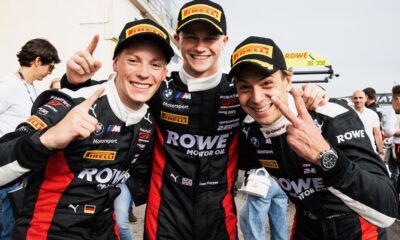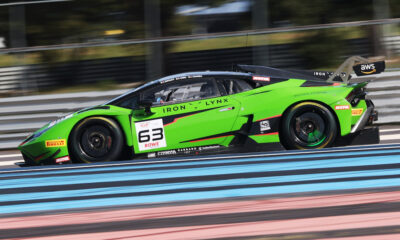SRO Motorsports Group is considering the introduction of renewable fuel in the Fanatec GT World Challenge Europe powered by AWS series next year.
SRO founder and CEO Stephane Ratel told Sportscar365 that the GT racing promoter has opened a tender for a supplier to develop a new fuel catered to its GT3 platform.
More details are expected to come at the TotalEnergies 24 Hours of Spa later this month.
Ratel explained that SRO is also in the process of hearing feedback from participants, including car manufacturers, regarding the introduction of renewable fuel technology.
More sustainable fuels have been introduced this year in the FIA World Endurance Championship, which now uses TotalEnergies Excellium Racing 100 developed from wine residue, and in ADAC GT Masters which runs on Blue Gasoline 98 developed by Shell.
The WEC fuel is made purely from biomass while the GT Masters fuel, which is for the same GT3 formula that races in GTWC Europe, contains around 50 percent renewable components.
TotalEnergies brand Elf is the current designated fuel supplier for GTWC Europe with its Core 50 unleaded racing product.
“We have made a tender for a renewable fuel,” Ratel said.
“We are receiving, on the one side, an assessment from the manufacturers. And on the other side, we have a tender.
“We will bring all that together and decide what we do for next year. It will be a progressive approach.
“We have made a large survey, both with the teams and the manufacturers.
“Most importantly, with the manufacturers to assess their situation for introducing sustainable fuel in GT3.
“There are mixed answers, and we are analyzing it. We will decide in time [to confirm] at Spa. It could be initially for Europe and then extend globally.”
The potential introduction of renewable fuel in GTWC Europe would fall in line with SRO’s global sustainability plan which includes the target of achieving operational carbon neutrality by next year.
Last November the organization outlined plans for its racing fuel to have 60 percent lower CO2 emissions by 2023, culminating in zero CO2 by 2030. It is also working with official partner Pirelli to enhance the sustainability of its tire compounds and practices.
Ratel highlighted that while introducing renewable fuel would be a step toward lower carbon emissions, the main contributor is the logistics of transporting cars, people and equipment to races.
This is particularly pertinent for SRO, which is holding 29 GT World Challenge rounds this year across four regional series, as well as championships for other markets.
“We should never forget that, even with our big engines and long races, the fuel we consume only represents around 3-5 percent of the total emissions of our championship,” Ratel said.
“70 percent is down to logistics, which is huge. The most sustainable thing you can do is where you position your races in the calendar. That is the key.
“If you look at one thing, it’s where your teams are located and where your races are. The closer the races are to your teams, the lower the emissions by a huge margin.
“If you have Formula E and cargo going around the planet like this, your carbon footprint is much worse than something like Intercontinental GT Challenge where you use local teams and you only fly a couple of drivers. It is much, much, much less.
“The most visible part of emissions is the fuel you burn. But logistics is far more important.”
Ratel suggested that the current GTWC Europe schedule, which has five rounds each for Endurance Cup and Sprint Cup, is appropriately geared up for a minimized environmental impact.
“It’s completely compact and that’s part of our environmental policy,” he said.
“We don’t go to Portugal or Hungary… we are where the teams are. We are very efficient when it comes to that.
“From the first presentation of Intercontinental GT Challenge, it was mentioned. [For IGTC] it’s more cost-efficient and environmentally friendly to use local teams and cars, and only fly the top engineers and drivers rather than flying cars and equipment.
“Even the Fanatec GT World Challenge… it’s a global championship based on local teams. I think we are quite environmentally friendly despite our big engines and long races.”


